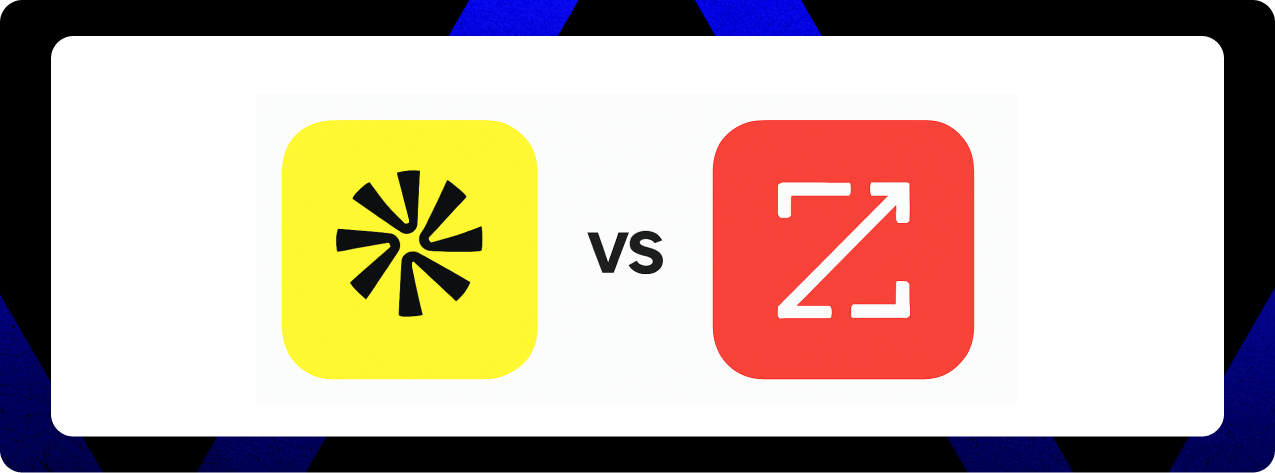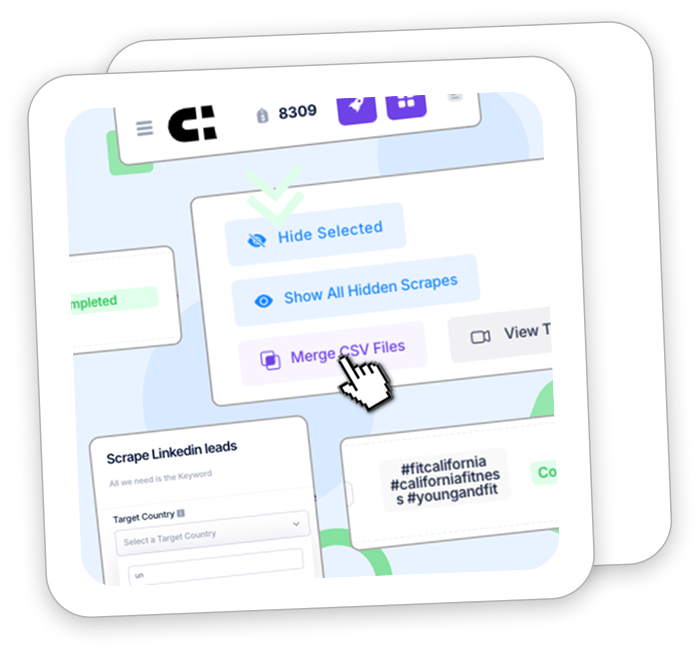Healthcare Email List: How to Build and Maintain One for Your Business
Healthcare Email List
Table of Contents
What Does a Healthcare Email List Include?
A healthcare email list is a collection of verified and accurate email addresses of healthcare professionals interested in your brand and its offerings. The list includes several data points that make identifying and targeting your ideal prospects easy.
The main component of a healthcare email list is a list of email addresses of verified healthcare professionals. In addition to email addresses, the list may also include other contact information such as the names, titles, and phone numbers of the healthcare professionals. The list may also include demographic information about the healthcare professionals, such as their location, specialty, and years of experience. Some healthcare email lists may also include additional data, such as the healthcare professionals’ interests or their website addresses.
It’s important to note that the specific information included in a healthcare email list can vary depending on the provider. Some providers may only provide email addresses, while others may provide more comprehensive information.
Using a healthcare email list from a reputable provider like IGLeads.io can help businesses connect with their target audience in the healthcare industry more effectively.
Related Posts:
Healthcare Email Lists by Specialty
Healthcare email lists can be categorized by specialty, making it easier for healthcare marketers to reach their target audience. Here are some examples of healthcare email lists by specialty:
- Allied healthcare professionals: This list includes email addresses for nurses, technicians, therapists, and other healthcare professionals who support the work of doctors and surgeons.
- Doctors: This list includes email addresses for doctors of all specialties, including family medicine, internal medicine, surgery, and pediatrics.
- Nurses: This list includes email addresses for nurses of all levels, including registered nurses, licensed practical nurses, and certified nurse assistants.
- Pharmacists: This list includes email addresses for pharmacists who dispense medications and provide drug information to patients and healthcare professionals.
- Other healthcare professionals: This list includes email addresses for other healthcare professionals, such as dentists, veterinarians, and chiropractors.
These healthcare email lists can be used to promote products or services to a specific group of healthcare professionals. For example, a pharmaceutical company can use a pharmacist email list to promote a new drug, while a medical device company can use a surgeon email list to promote a new surgical instrument.
Related Posts:
Who Can Benefit From a Healthcare Mailing List?
A healthcare mailing list can benefit a variety of businesses, organizations, and individuals. Healthcare providers can use a mailing list to reach their patients, promote their services, and provide educational resources. Healthcare businesses, such as pharmaceutical companies, medical device manufacturers, and healthcare IT companies, can use a mailing list to market their products and services to healthcare professionals. Researchers can use a healthcare mailing list to recruit participants for clinical trials and to conduct surveys. Healthcare educators can use a mailing list to distribute educational materials and to stay in touch with their students. Policymakers can use a healthcare mailing list to get feedback from healthcare professionals and the public on healthcare policy issues.
IGLeads.io’s healthcare mailing list is an excellent resource for businesses and individuals who want to reach out to healthcare professionals. By using the list, they can make sure that their message reaches the right people and that they get the response they need.
Related Posts:
UpLead has the Most Dependable Healthcare Email Database
UpLead is a reliable and affordable place to buy email lists for the healthcare industry. UpLead has an extensive and accurate database of over 140 million professional profiles, including over 1 million healthcare professionals. The data is regularly updated and verified to ensure accuracy. Unlike other email list providers, UpLead does not sell scraped or outdated data. All of the data in UpLead’s database is collected through ethical means and verified to ensure accuracy.
UpLead’s targeted search feature allows you to search for leads by job title, company, industry, location, and other criteria. This feature allows you to target your email campaigns to the most relevant prospects. Additionally, UpLead provides intent data, showing you which leads are most likely to be interested in your products or services. This information can help you prioritize your outreach and improve your conversion rates.
UpLead’s platform is easy to use, even for beginners. You can create and launch email campaigns in minutes. UpLead offers a variety of pricing plans to fit your budget. UpLead also offers 24/7 customer support to help you with any questions or problems.
UpLead integrates with popular CRMs like Salesforce, HubSpot, and Pipedrive. These integrations make it easy to manage your leads and track your results. UpLead also offers a free trial, so you can try it out before you buy.
If you’re serious about growing your healthcare business, then you need to start with a reliable email list. UpLead is the best place to get the healthcare email lists you need to achieve your goals.
Related Posts:
Reach Top Healthcare Professionals With a Healthcare Email List
A healthcare email list is a powerful tool for reaching top healthcare professionals. With a targeted email campaign, you can ensure that your message is seen by the people most likely to be interested in your products or services. Here are some of the key benefits of using a healthcare email list:
- Targeted reach: A healthcare email list allows you to target your email campaigns to specific healthcare professionals, such as doctors, nurses, or administrators. This ensures that your messages are seen by the people most likely to be interested in your products or services.
- Increased engagement: Email is a highly personal and engaging channel, so you can expect higher open rates and click-through rates than with other marketing channels. This can help you build relationships with healthcare professionals and drive sales.
- Better ROI: Email marketing is a cost-effective way to reach a large audience and generate leads. The average ROI for email marketing is $38 for every $1 spent. By using a healthcare email list, you can maximize your return on investment and grow your business.
- Build relationships: Email is a great way to build relationships with healthcare professionals. You can share valuable content, provide updates on your services, and answer questions. This can help you position yourself as a trusted resource and build loyalty among your target audience.
- Drive sales: Use email marketing to drive sales by promoting your products or services, offering discounts or coupons, and nurturing leads. With a healthcare email list, you can reach top healthcare professionals and drive more sales for your business.
In addition to these benefits, a healthcare email list can also help you increase brand awareness, generate leads, nurture leads, and measure your results. By using a healthcare email list, you can grow your business and reach more healthcare professionals than ever before.
IGLeads.io is a great resource for building a healthcare email list. Their LinkedIn Email Scraper allows you to easily extract email addresses from LinkedIn profiles, making it easy to build a targeted email list of healthcare professionals. With IGLeads.io, you can take your healthcare email marketing to the next level and grow your business.
Related Posts:
FAQs About Healthcare Email Database
Why Use a Healthcare Email List?
A healthcare email list is a valuable tool for businesses, researchers, and recruiters involved in the healthcare industry. It can be used for marketing, research, recruitment, building relationships, and raising awareness. With a targeted email list, you can reach out to the right people and improve your chances of success.
Accuracy of Healthcare Email Lists
The accuracy of a healthcare email list depends on the data source and collection, cleaning, and maintenance protocols. To ensure an accurate healthcare email list, it is important to get quotes from multiple providers, ask about the list’s accuracy and maintenance, request a sample of the list, and read the terms and conditions carefully.
How to Get in Touch with Healthcare Professionals
There are several ways to get in touch with healthcare professionals. You can contact their office directly, find their contact information on their website or by calling their office. You can also use directories such as Healthgrades, Healthcare.gov, and Zocdoc. Additionally, you could attend events and conferences, reach out on social media, or ask for a referral from a friend.
Related Posts:
Frequently Asked Questions
How to obtain a healthcare email list?
To obtain a healthcare email list, you can either purchase it from a reliable healthcare email list provider or build it yourself. Building an email list from scratch can be time-consuming and challenging. Therefore, it is recommended to purchase a healthcare email list from a reputable provider like IGLeads.io.
What are the benefits of using a healthcare email list?
Using a healthcare email list can be beneficial in several ways. It enables you to reach out to a large number of healthcare professionals, including doctors, nurses, pharmacists, and other medical executives. With a healthcare email list, you can promote your products and services, generate leads, and increase your ROI.
Where to find a reliable healthcare email list provider?
There are many healthcare email list providers in the market, but not all of them are reliable. To find a trustworthy provider, you need to do your research and look for providers with a good reputation. IGLeads.io is a reputable healthcare email list provider that offers accurate and up-to-date email lists at an affordable price.
Are there any regulations or laws governing the use of healthcare email lists?
Yes, there are regulations and laws governing the use of healthcare email lists. Healthcare professionals are protected by HIPAA (Health Insurance Portability and Accountability Act) regulations that require the protection of patient information. Therefore, it is essential to ensure that your email lists comply with these regulations.
What types of healthcare professionals are included in a typical healthcare email list?
A typical healthcare email list includes a wide range of healthcare professionals, including doctors, nurses, pharmacists, and other medical executives. The list can be segmented based on various criteria, such as specialty, location, and job title.
How to ensure the accuracy and relevance of a healthcare email list?
To ensure the accuracy and relevance of a healthcare email list, you need to verify the data regularly and update it as needed. You can also use data validation tools to ensure that the email addresses are valid and active. IGLeads.io offers accurate and up-to-date email lists that are regularly verified to ensure their accuracy and relevance.



